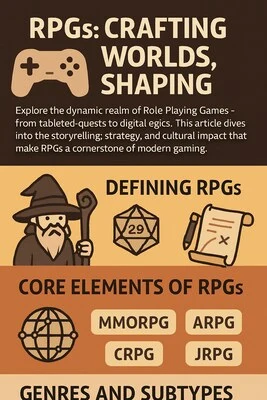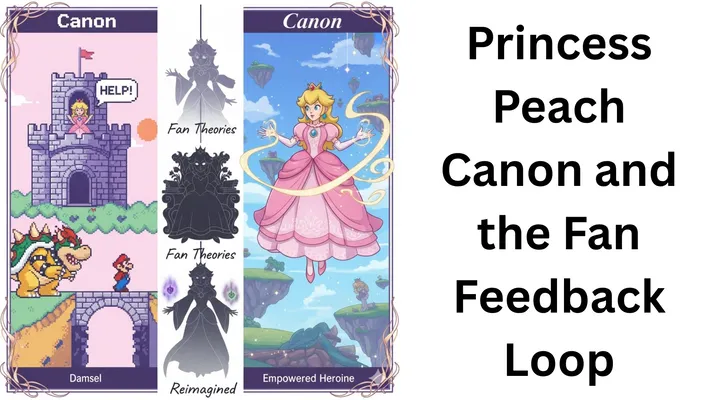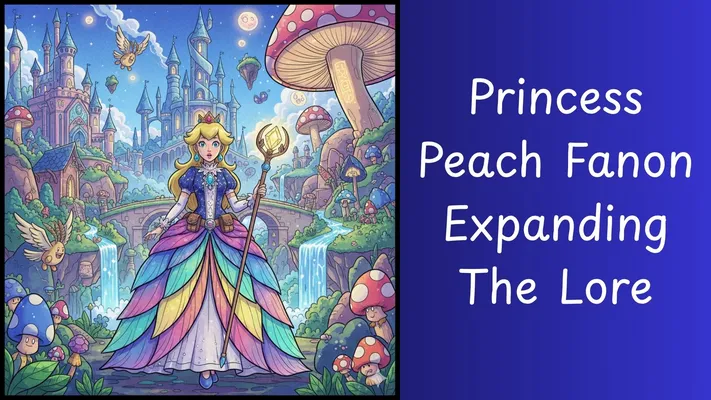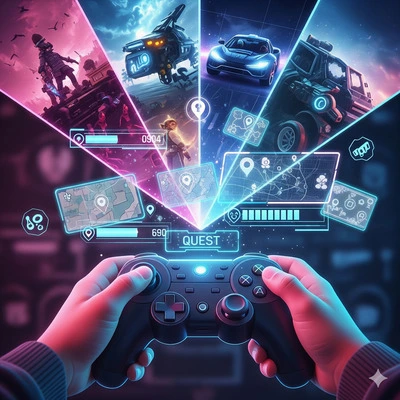The Evolution and Impact of Role-Playing Games (RPGs) By [Liam]
🎮 Introduction Role-Playing Games (RPGs) have long captivated players with their immersive storytelling, character development, and strategic gameplay. From tabletop adventures to expansive digital worlds, RPGs offer a unique blend of narrative and interactivity that continues to shape the gaming landscape.
🧙 Defining RPGs At their core, RPGs are games in which players assume the roles of characters in a fictional setting. These characters often possess distinct traits, abilities, and backstories, and players make decisions that influence the unfolding narrative. RPGs can be broadly categorized into:
- Tabletop RPGs (TTRPGs): Played with pen, paper, dice, and imagination. Examples include Dungeons & Dragons and Pathfinder.
- Live Action Role-Playing (LARP): Players physically act out their characters’ actions in real-world settings.
- Video Game RPGs: Digital adaptations that range from single-player experiences to massive multiplayer online games (MMORPGs) like World of Warcraft.
🧩 Core Elements of RPGs RPGs typically feature several defining characteristics:
- Character Creation: Players design avatars with unique skills, classes, and backgrounds.
- Narrative Depth: A central storyline often accompanied by side quests and branching paths.
- Progression Systems: Characters evolve through experience points, leveling up, and acquiring new abilities.
- Interactive Worlds: Players engage with non-player characters (NPCs), environments, and game mechanics that respond to their choices1.
🌐 Genres and Subtypes The RPG genre has diversified into several subtypes:
| Type | Description |
|---|---|
| MMORPG | Massively multiplayer games with persistent worlds and social interaction. |
| ARPG | Action RPGs emphasize real-time combat and reflex-based gameplay. |
| CRPG | Computer RPGs often feature turn-based mechanics and deep storylines. |
| JRPG | Japanese RPGs known for stylized art, linear narratives, and character-driven plots. |
📜 Cultural and Educational Impact Beyond entertainment, RPGs have found applications in education, therapy, and professional training. They foster creativity, problem-solving, and collaboration. Tabletop RPGs, in particular, have been used to teach storytelling, ethics, and even mathematics.
🚀 The Future of RPGs With advancements in artificial intelligence, virtual reality, and procedural generation, RPGs are poised to become even more immersive. Developers are exploring dynamic narratives that adapt to player behavior, creating truly personalized experiences.
🎯 Conclusion Role-Playing Games continue to evolve, bridging the gap between storytelling and gameplay. Whether through dice rolls or digital quests, RPGs empower players to explore new worlds, forge identities, and shape stories that resonate far beyond the screen.




